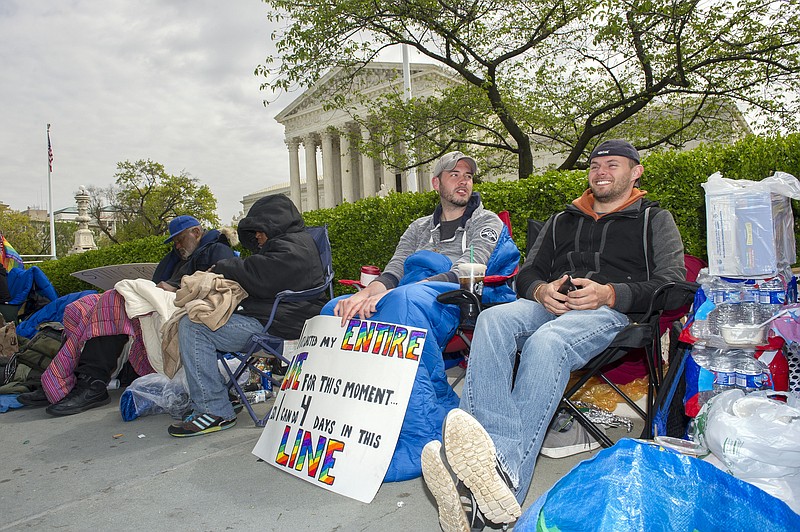Sometime this month, the United States Supreme Court will hand down a decision that effectively determines whether same-sex marriage shall be the law of the land.
If, as many predict, the court comes down on the side of same-sex marriage, the Christian church will have before it a challenge unlike any it has encountered.
"The outcome of this decision," wrote Russell Moore, president of the Ethics & Religious Liberty Commission of Southern Baptist Convention, "will shape the landscape of the church's ministry in the U.S. for generations to come."
Love will be the key to such a challenge.
Many Christian churches, regardless of their views on homosexuality in general and same-sex marriage in particular, have welcomed gays, believing them no different than heterosexuals in having sinned and fallen short of the glory of God.
And the role of the church, after all, is to witness to the love of God in Jesus Christ.
A Supreme Court ruling on the matter of same-sex marriage is unlikely to force any denomination to approve same-sex marriage or force any members of the clergy to marry couples of the same gender.
The ruling, instead, is likely to come down on the civil acceptance of such marriages, codifying them to be held the same as heterosexual marriage where the likes of income tax, insurance and inheritance are concerned.
Christian churches, then, will have several options before them.
They can, as several already have, approve same-sex marriage, eschewing any biblical statements forbidding the practice of homosexuality, stating that Jesus never directly mentioned it and choosing with a 21st century lens to see all sexuality as the same.
The Episcopal Church, for instance, more than 35 years before it authorized a provisional rite of blessing for same-gender relationships, declared that "homosexual persons are children of God who have a full and equal claim with all other persons upon the love, acceptance and pastoral concern and care of the church."
The Presbyterian Church (USA), earlier this year, approved an amendment to its Book of Order that changes its definition of marriage. That passage now reads: "Marriage is a gift God has given to all humankind for the wellbeing of the entire human family. Marriage involves a unique commitment between two people, traditionally a man and a woman, to love and support each other for the rest of their lives."
Other churches, no doubt, will both hold the line against welcoming the presence of homosexuals and, concurrently, against same-sex marriage.
The rest of the churches have a real opportunity before them.
Indeed, the road less traveled would be to maintain the same biblical perspective on marriage they've held for two millennia while welcoming homosexuals who believe differently.
The key, again, is love.
Teaching from these churches should not put any stumbling blocks before homosexuals in their desire to hear the call of God. But neither should church teaching stray from God's ordination of marriage between a man and a woman, from modeling that traditional view of marriage, from speaking of its measured benefits for spouses and children, and from seeking to lower the divorce rate by recommitting to God's vision of marriage.
At the same time, these churches could craft new teaching for homosexual couples on the importance of commitment, on how to overcome difficulties in raising children and on how to share their particular gifts.
No one should expect such a change will be easy.
"For many people," Archbishop Joseph Kurtz, president of the U.S. Conference of Catholic Bishops and the former bishop of the Diocese of Knoxville wrote in a letter that was signed by a diverse group of religious leaders, "accepting a redefinition of marriage would be to act against their conscience and to deny their religious beliefs and moral convictions."
But no matter what the Supreme Court decides on same-sex marriage, God's ordination of marriage will not change. And Christ's establishment of the church as a community of those who follow his teachings will not change. So if today's churches follow his admonition to love God and love their neighbors as themselves, they will be on the right track.
